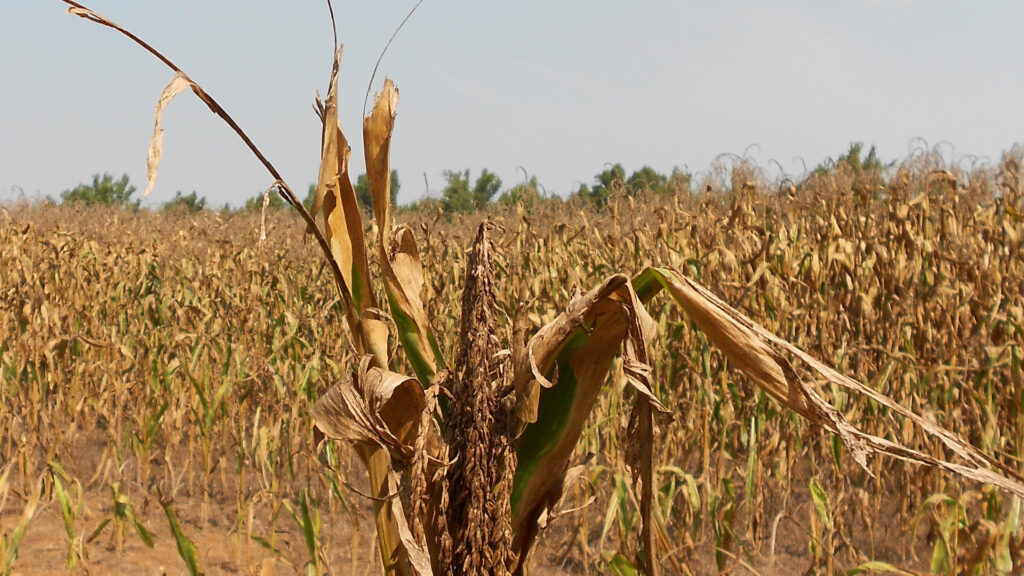By FIU News
People around the world face increased risk of heat stroke, asthma attacks and malnutrition. Understanding the driver behind these rising health threats remains critical to solving them.
That message came through loud and clear when Florida International University hosted a gathering of top national experts around its new Population Health Initiative, a 20-year research effort with the aim of advancing health through collaboration across the university.
Convening more than 50 experts recently at its Washington, D.C., center, the university took the lead in drawing attention to a global issue: the link between climate change and human health.
That connection will have ever-greater ramifications as the planet continues on a warming trajectory, having just experienced the hottest year on record, leaders say.

“I was in Orlando a year or so ago and heard from farmworkers,” shared Admiral Rachel Levine, assistant secretary for health for the U.S. Department of Health and Human Services. “Because of the impacts of extreme heat and dehydration, it’s common to have significant renal damage.”
President of the National Academy of Medicine Dr. Victor Dzau shared data from the world’s largest investigation of global climate-related mortality. More than 5 million extra deaths a year can be attributed to abnormally hot and cold temperatures, according to the international study.
Additionally, approximately 700,000 deaths are due to insect-borne diseases, among them malaria and dengue, the result of an ever-warmer, more-favorable climate for the reproduction of mosquitos and related pests.
A study in the European medical journal The Lancet in November reported that global warming caused by climate change could exacerbate mortality from respiratory diseases. High temperatures lead to an increase in pollutants and allergens, and the poor air quality leads to reduced lung function, increased risk of asthma complications, heart attacks, heart failure and death, the publication stated.
Hunger and malnutrition are predicted to worsen. Hotter, drier conditions are forecast to reduce the quantity of agricultural products grown in the coming decades, likely leading to food insecurity. Quality will also suffer, say scientists, as crops will contain higher concentrations of carbon dioxide, which will reduce their protein, zinc and iron content.

“The public needs to know that this is a public health crisis,” Dzau said. “The story that you hear never mentions health issues sufficiently,” he stated with regard to communicating the seriousness of how climate change will affect population well-being.
Dzau and other speakers emphasized that underserved communities and groups generally will fare the worst unless action is taken.
Director of the National Institute on Minority Health and Health Disparities at the National Institutes of Health, Dr. Eliseo J. Pérez-Stable, pointed out current research that addresses the care inequities faced by racial and ethnic minorities, those living in rural areas and people with disabilities. He reiterated that the ill effects of a changing climate will likewise disproportionally affect the marginalized.
FIU’s Population Health Initiative is collaborating with the University of Washington’s Population Health Initiative and will work to find solutions in the areas of health economics, health over the life course, infectious and chronic diseases, and climate variability and community resilience. University of Washington President Ana Mari Cauce joined FIU President Kenneth A. Jessell at the event to stress their shared commitment to working in tandem on critical challenges.
FIU Senior Vice President for Research and Economic Development Andrés G. Gil has pledged the human capital and other resources required for success.

“Health impacts at the population level are complex, with many contributing factors such as economics, the environment and access to preventive health care,” Gil said. “FIU has a large cadre of researchers and research teams from different disciplines who will work together to find long-range solutions that can be implemented by local, regional, global and private stakeholders.”
Six FIU faculty fellows, representing diverse disciplines, attended the event, among them Mariana Sanchez, an associate professor of public health. “One of the takeaways is really emphasizing the importance of interdisciplinary collaborations and solving these critical issues as they relate to climate and health and all the other priority areas,” she said. “It’s so multifaceted that we need to work together in order to solve these complex structural problems.”
Seven students also participated as part of a “Women and Health Care” fly-in, a learning opportunity that allowed them direct access to leading authorities and important conversations. “I learned that climate change is much more important than we even think,” said Nazerke Aitmukhanbetova, a senior studying health services administration. “Action is needed now.”
The focus on the link between climate and health showcased FIU’s twin institutional pillars of environmental resilience and health. The recent meeting, which drew members of Florida’s congressional delegation, followed on the heels of FIU’s gathering earlier in the month of leaders and industry professionals interested in climate resiliency technology. FIU has joined forces with local governments to move forward the newly designated South Florida Climate Resilience Tech Hub, focused on sustainable and resilient infrastructure solutions to meet the global climate crisis.
Student Rhobie Toussaint contributed to this article. Click here to watch the full program of expert presentations and discussions. Click here to view an album of photos from the event. This piece was originally published at https://news.fiu.edu/2024/too-often-left-unsaid-the-connection-between-climate-change-and-health.
Sign up for The Invading Sea newsletter by visiting here. If you are interested in submitting an opinion piece to The Invading Sea, email Editor Nathan Crabbe at ncrabbe@fau.edu.



